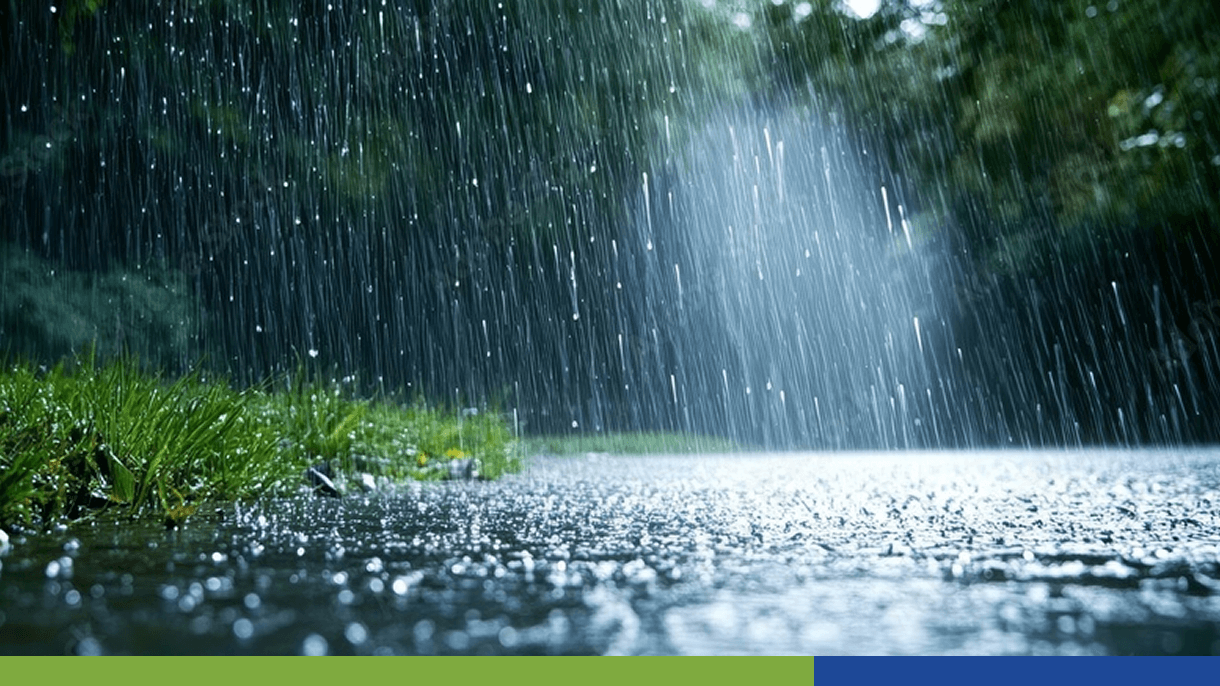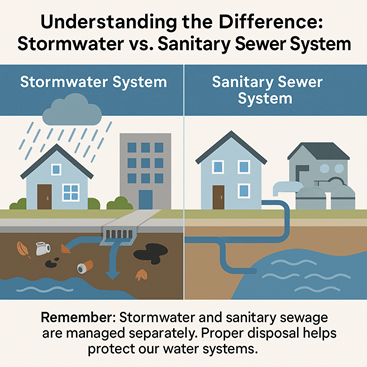
Spring Storms and Your Sewer System: What You Can Control

Spring is here – bringing longer days, blooming gardens, and the occasional reminder to keep an eye on your home’s plumbing systems. While we don’t manage stormwater runoff or drainage systems, we are your utility provider for wastewater collection and we want to help you protect your home and our shared infrastructure.
To begin with, it’s helpful to understand the difference between stormwater systems and sewer systems:
- Stormwater runoff flows off streets, roofs, and lawns and typically enters storm drains that lead directly to local creeks, streams, or lakes — without treatment.
- Sanitary sewer systems carry wastewater from toilets, sinks, and showers to a treatment plant — that’s the system we manage
When the wrong items end up in the sewer system, it can cause clogs, backups, and even overflows – problems that can get worse during heavy rain. Let’s take a closer look at what causes sewer backups and how you can help protect your home and community:
What Causes Sewer Backups?
Sewer backups and overflows can result from:
- Tree roots infiltrating pipes and blocking flow
- Grease and oil congealing inside pipes and causing clogs
- Flushing non-biodegradable items like wipes, paper towels, or feminine hygiene products
- Cracked or deteriorating laterals — the pipes that connect your home to the main sewer line and are typically the responsibility of the property owner.
These issues are made worse during storms, when increased groundwater can seep into aging sewer systems, adding strain and pushing them to their limits.
How You Can Help Prevent Sewer Issues
1. Be Careful What You Flush- Only flush toilet paper and human waste. Wipes (even “flushable” ones), feminine hygiene products, and paper towels should be disposed of in the trash — not the toilet.
2. Keep Grease Out of Drains- Cooking grease might go down as a liquid, but it cools into a thick sludge that clogs pipes. Let grease cool in a container and throw it in the trash.
3. Inspect and Maintain Your Sewer Lateral- The sewer lateral is your home’s piping connection to the main sewer line. If it’s damaged or blocked, it can back up into your home. Regular inspections and cleanings can catch issues early — especially if you have large trees on your property.
4. Install a Backwater Valve- This device prevents wastewater from flowing backward into your home during peak sewer flows. It’s an effective safeguard and in most cases, a legal requirement. Click here for more information on backflow devices.
5. Use Water Wisely During Storms- When it’s pouring outside, give your sewer system a break. Wait to do laundry, run the dishwasher, or take long showers until after the rain slows down.

We’re In This Together
As a water and wastewater utility provider, we are committed to delivering safe, reliable service. And as our customer, you play an important role, too. Simple steps from each customer go a long way in keeping systems running smoothly and protecting your property — especially during spring storms.
By staying informed and prepared, we can help protect our sewer systems and keep our communities safe and strong.